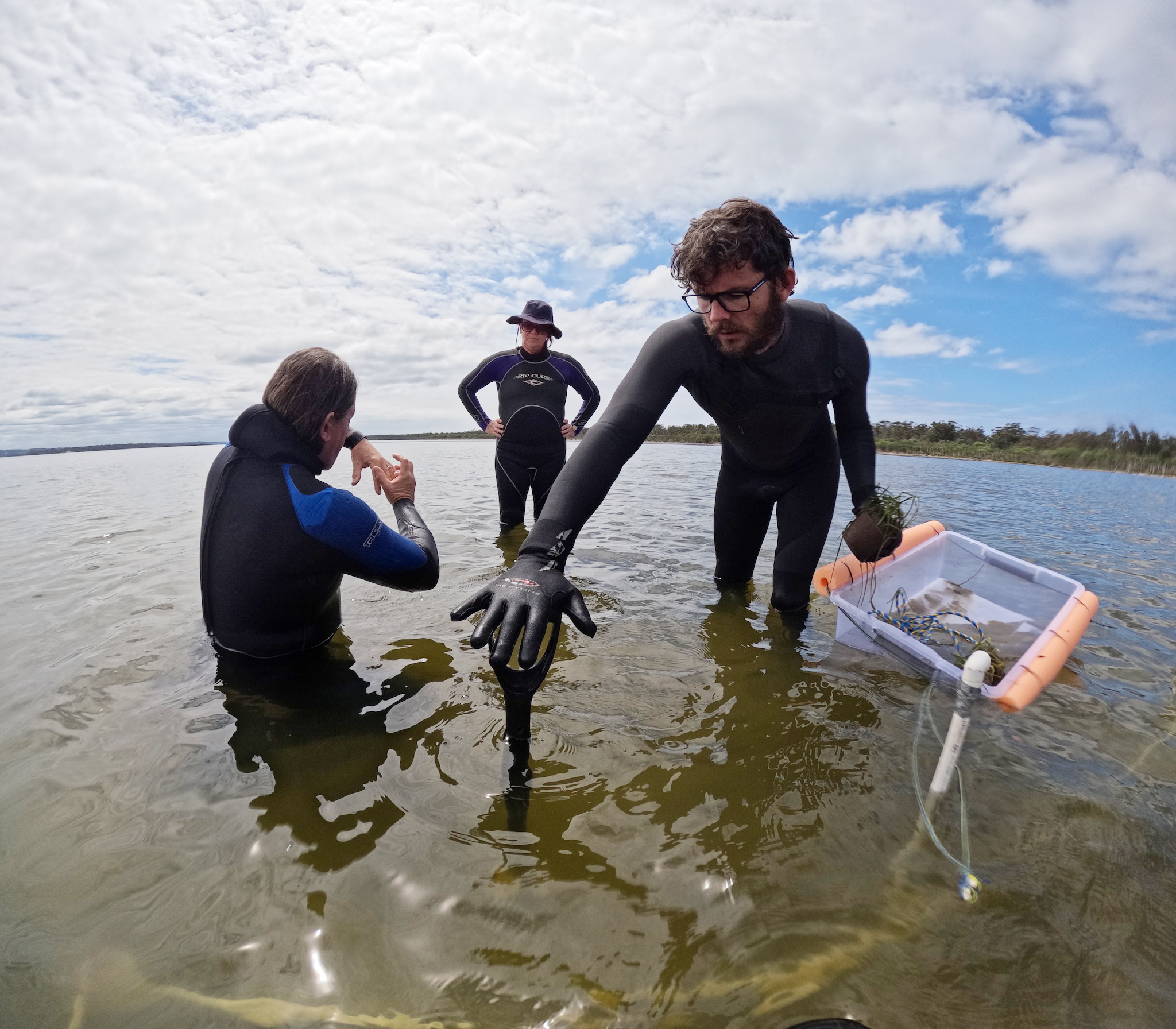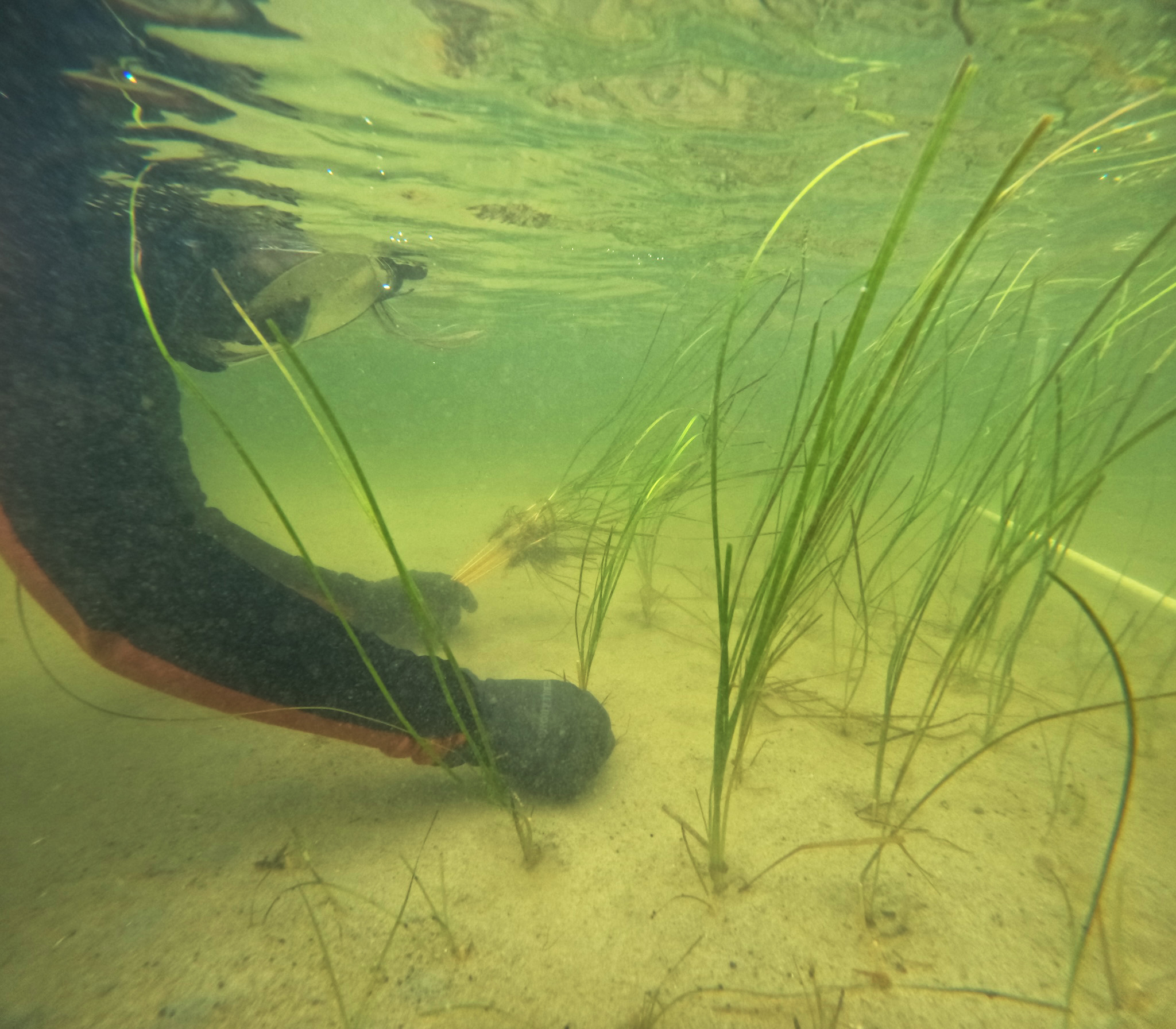East Gippsland Catchment Management Authority, Parks Victoria, Greening Australia and volunteers recently put on wetsuits and snorkels to commence the first trials to restore the once widespread seagrass meadows of the Gippsland Lakes.
“Seagrass is an essential part of the Gippsland Lakes Ramsar site ecosystem. It provides food, habitat, filtering and a nursery for baby fish, crabs, shrimps and seahorses,” said Bec Hemming, CEO East Gippsland CMA.

Recent satellite mapping revealed a reduction in the Lakes’ seagrass meadows which led the team to develop the project to trial restoration techniques.
Deakin University supported the trial design which was based on a similar program developed for the Western Port Ramsar site.
East Gippsland CMA recently partnered with Parks Victoria, GLaWAC, Gippsland Ports, Greening Australia and Habitat Creations to deliver the first stage of harvesting and planting one the two species of seagrass found in the Lakes – Zostera muelleri.
Working largely underwater in depths of 50 centimetres to one metre, the team pegged out 15 x 3 metre plots using snorkels at trial sites near Bunga Arm, Walliston Bay and Pelican Island.

They then harvested rhizomes and collected the central plug, roots and soil. The plugs were planted directly into the seabed and the rhizomes were secured with bamboo stakes.
The team will now monitor the sites every two weeks and then monthly for the rest of the year with seed collection planned for next February.
The restoration trial objective is to develop a workable model to restore seagrass to the Gippsland Lakes Ramsar Site that can be scalable into the future.
“Seagrass meadows are a critical component of the ecological character of the Gippsland Lake Ramsar site. This is why it is important we understand how effective our management strategies are in protecting and rejuvenating seagrass populations now and into the future,” Bec said.
This project is part of a $248 million investment by the Victorian Government to improve the health of waterways and catchments. Of this, $7.5 million is being provided to improve the health of Gippsland Lakes over three years (2021-2024), through support to the Gippsland Lakes Coordinating Committee and for the delivery of on-ground works and community engagement.
Full details of the Gippsland Lakes projects